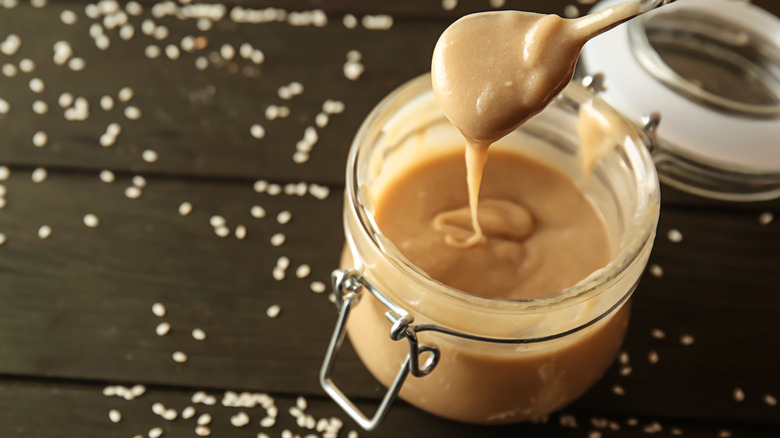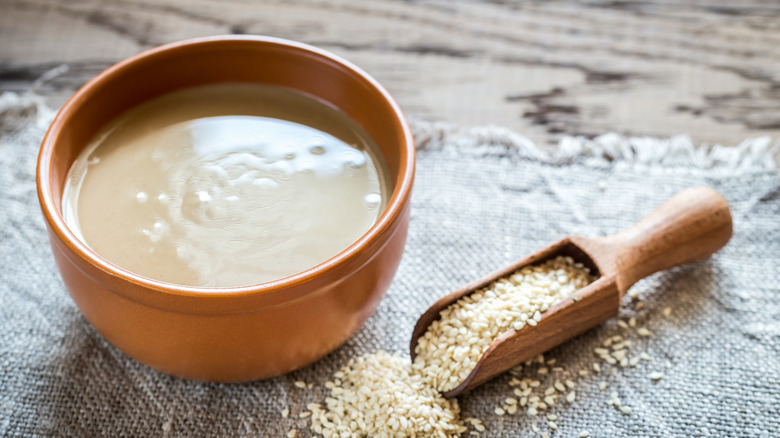Does Tahini Need To Be Stored In The Fridge?
Tahini's nutty, rich flavor profile and creamy texture makes it an indispensable ingredient, and correctly storing it is essential to making the most of its qualities. Most commonly made from hulled and roasted white sesame seeds, tahini does not need to be kept in the fridge — just like any other type of nut and seed butter, whether peanut, almond, or anything else — but you can choose to keep it there depending on how you plan to use it.
There are benefits to keeping tahini in the fridge. Cold temperatures slow down the oxidation of the lipids (fats) in nut and seed butter, so your tahini will last longer before going bad. Cold also increases tahini's viscosity and thus reduces oil separation — it's the same reason it's sometimes recommended to store natural peanut butter in the fridge, saving the tedious process of stirring it back together whenever you want to use it.
However, tahini is naturally shelf-stable, so storing it in the fridge only has fringe benefits. It's not at all essential, and leaving it out doesn't risk it going bad.
How to use the fridge to up your tahini game
Most recipes call for the tahini to be liquid, whether mixed into hummus, made into a silky sauce, or simply spooned as a condiment. This is best achieved by keeping it in the pantry and giving it a hefty stir before using it to reintegrate any oil that has separated.
However, storing tahini in the fridge gives it a luxuriously spreadable, rich texture, making it a perfect topping for toast. Pair it with something you'd usually try with peanut butter, like banana or honey, or mix it with cocoa powder, sugar, and salt — or just some silky melted chocolate — for a rich and creamy spread to keep in the fridge ready for snacking.
Some brands also offer pre-flavored variants of tahini for this exact purpose, whether mixed with honey or chocolate. They, like classic tahini, tend to be shelf-stable.
When you really need to store tahini in the fridge
Storing tahini in the fridge is mostly down to personal preference, but you do need to keep it cold on one occasion — when it's been mixed into a tahini dressing or sauce. Although nutty, rich, pleasantly bitter sesame is the reason you're using tahini, its texture and flavor can be made even more exciting with some garlic, lemon juice, and a little water to thin it out.
This sauce is delicious, but tahini mixed with water also ferments and goes bad much faster than regular tahini, so it needs to be stored in the fridge and used within a few days. This isn't tahini's only watery quirk — when making that sauce, you'll find that the tahini thickens dramatically when you first add water. Don't fear — just keep diluting it, and it will eventually be let down into that smooth, pourable consistency ready for your salad or falafel.


